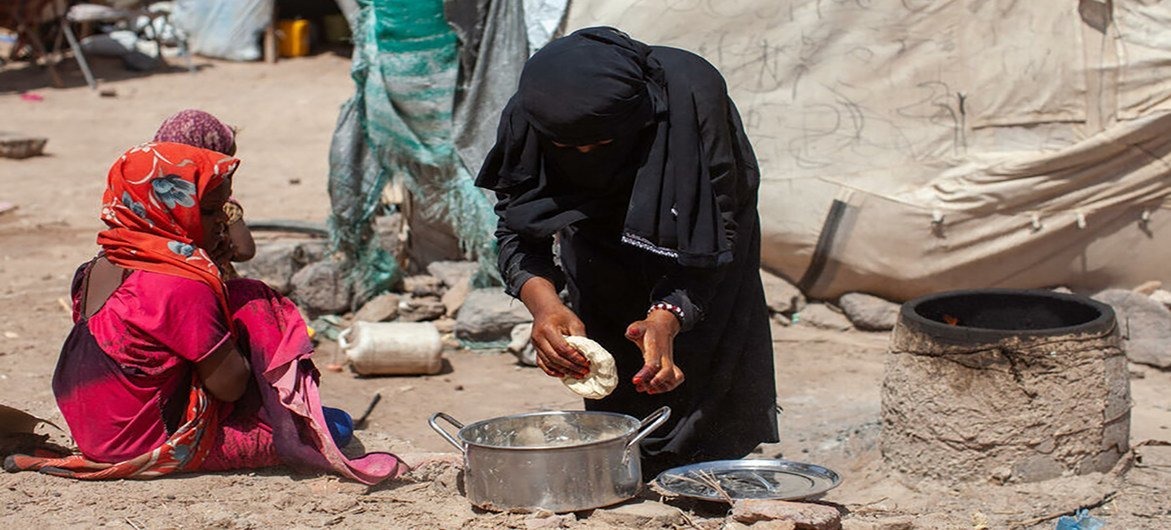


Barran Press
A recent report by the Food and Agriculture Organization of the United Nations (FAO) reveals a stark contrast in food security levels between areas controlled by the Houthi group, internationally designated as a terrorist organization and those under the control of the internationally recognized Yemeni government.
The report, based on FAO's monitoring of food security in Yemen during June 2024, indicates that food insecurity has slowed in government-held regions but slightly increased in areas controlled by the Houthis. This information was reported by the newspaper "Asharq Al-Awsat."
According to the data, food insecurity has worsened slightly, with the prevalence of inadequate food consumption increasing by approximately 3% in Houthi-controlled areas compared to the previous month.
However, the number of households experiencing severe food deprivation (poor food consumption score) has increased by 5% compared to the same period. The FAO views this as a sign of a deepening crisis in these Houthi-controlled regions.
The report highlights that food insecurity has seen a slight change on a year-on-year basis in both government-held and Houthi-controlled areas. It attributes the increase in food insecurity in Houthi-controlled areas primarily to economic and seasonal factors, coupled with a decline or shortage in humanitarian food aid.
The report points out that the lean season in Yemen, characterized by limited agricultural activities, dwindling income, and depletion of harvest stocks, has exacerbated food insecurity between May and July.
In addition to these factors, the report emphasizes that the situation in these areas has been further aggravated by the ongoing decline in food aid, rising food prices, including the basic food basket, a lack or loss of income and employment opportunities, and the repercussions of the Red Sea crisis.
The UN agency responsible for monitoring food security worldwide notes that approximately 61% of households in Houthi-controlled areas have faced income-disrupting shocks, a significantly higher percentage compared to April and May. In contrast, the proportion of households experiencing shocks in government-controlled areas reached 48%, marking the lowest recorded level.
The FAO's monitoring results reveal that government-controlled regions have witnessed a decline in food insecurity, with the percentage of households consuming inadequate food dropping to 48% in June from an average of 53% over the previous three months.
The findings caution that despite this "temporary" relief, food insecurity remains alarmingly high in government-controlled areas due to soaring food prices and the ongoing repercussions of the economic crisis.
The UN agency recommends prioritizing the immediate and rapid expansion of targeted humanitarian assistance packages, including emergency food aid and livelihood support, in the most affected areas and governorates.
Similarly, a report by UN partners in Yemen confirms that humanitarian needs in the country remain alarmingly high.
The report highlights that with the ongoing conflict, access to essential services such as clean water and healthcare has become extremely limited since March, leading to outbreaks of waterborne diseases.
The report underscores the worsening economic crisis, which has exacerbated food insecurity and restricted livelihoods for many Yemenis. It predicts that as of this year, 17.6 million people, or half of the total population, are likely to experience severe food insecurity.
The report further emphasizes that the disruption of public services, including education and sanitation, has further complicated the situation.
The United Nations Population Fund (UNFPA) reports that 7 million Yemenis require mental health treatment and support, yet only 120,000 individuals have uninterrupted access to these crucial services.